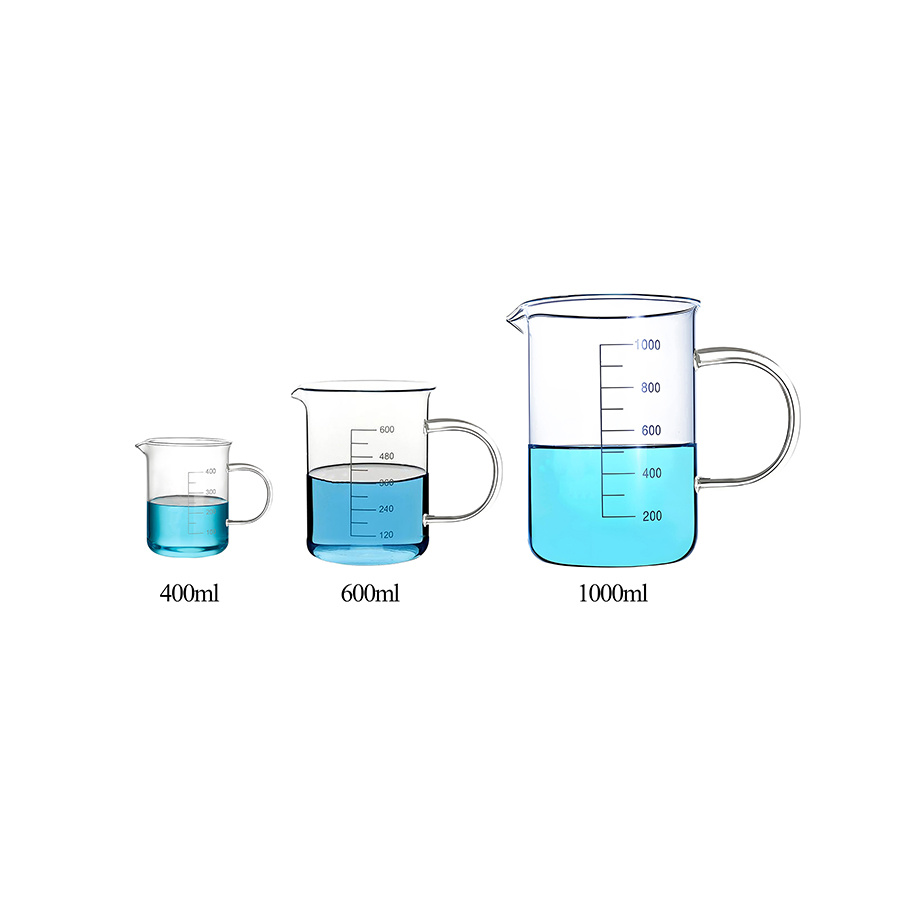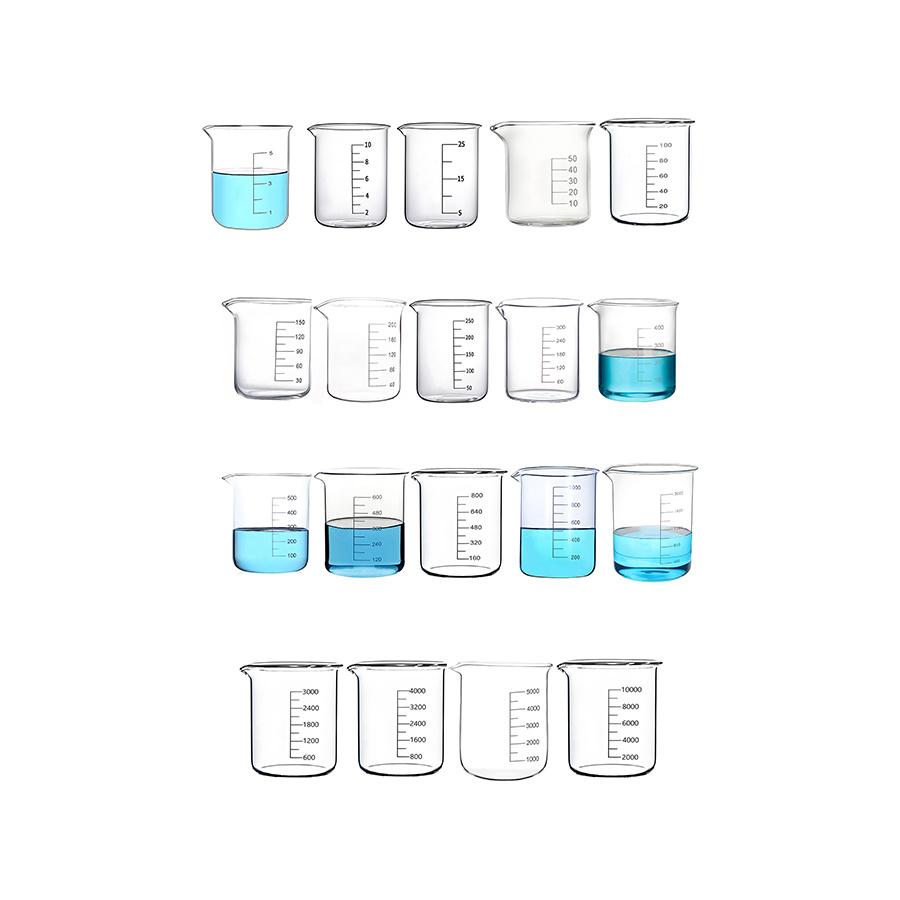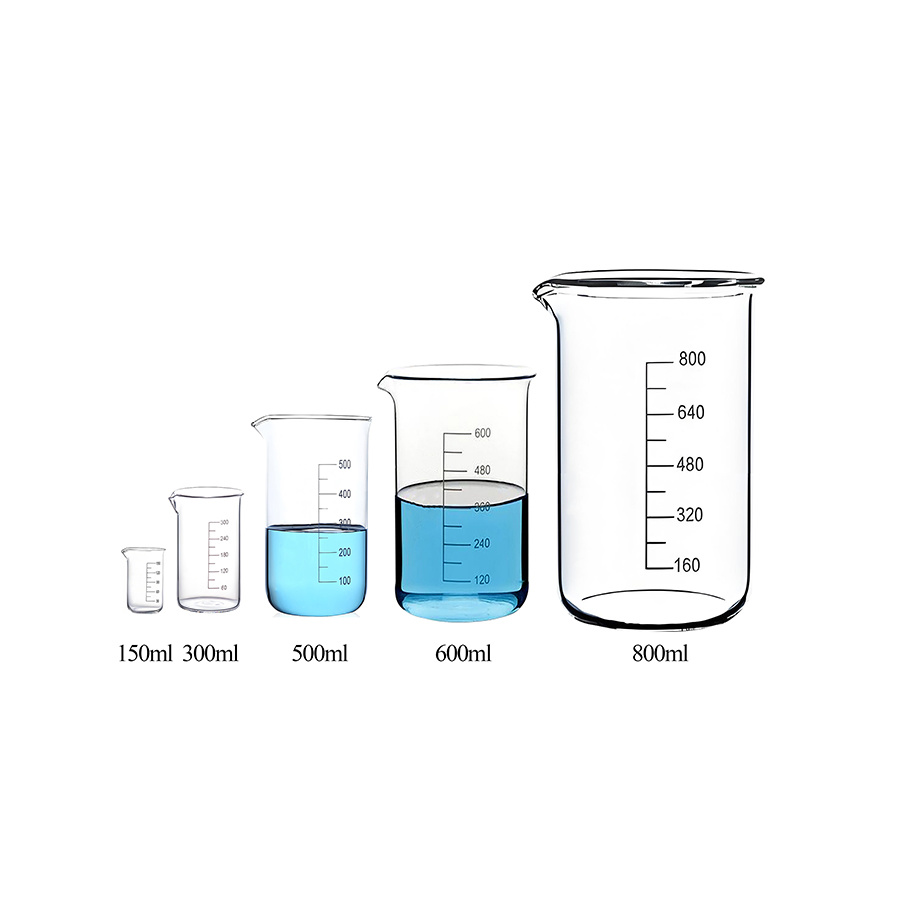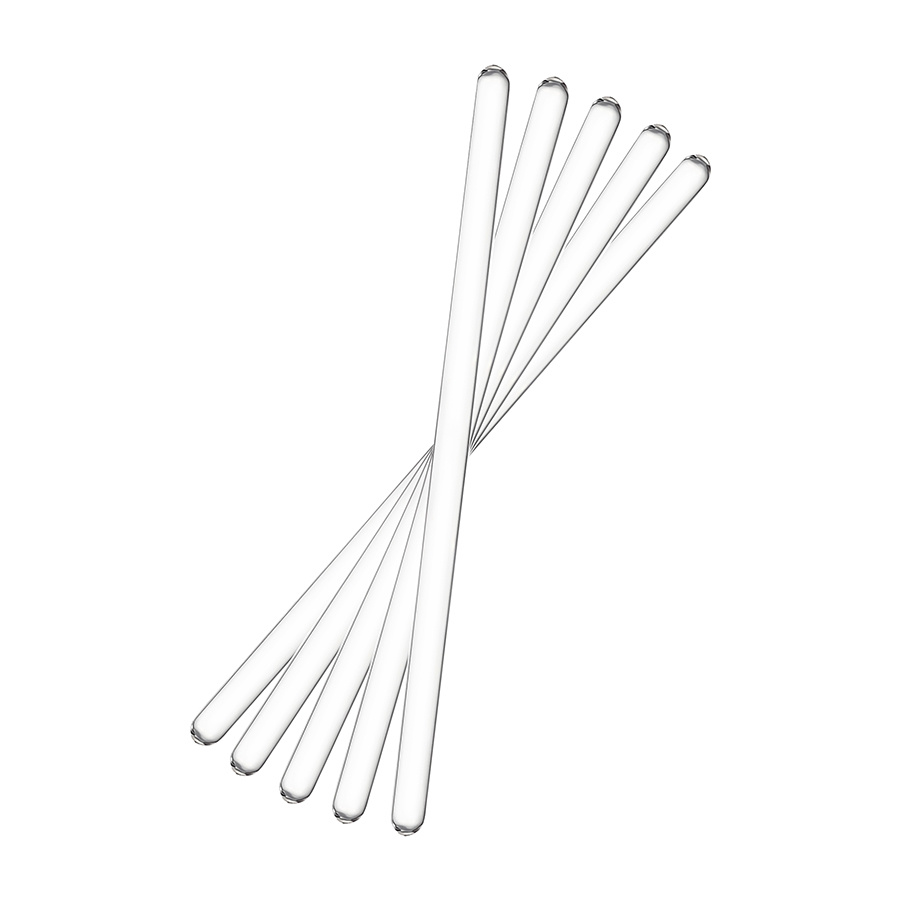Quality Assured
Just Buy It
- Comparison
- 在线预约
- 预约申请
- 样品申请
- 在线询价
Beaker, Conical
Beaker,Conical
FB-B

Brand:
RUISCI
-
Click to select
- FB-B-12-E,125ml,1Pcs
- FB-B-25-E,250ml,1Pcs
- FB-B-50-E,500ml,1Pcs
- FB-B-50,500ml,48Pcs
- FB-B-12,125ml,120Pcs
- FB-B-25,250ml,96Pcs
Inventory
1734
隐藏域元素占位
Overview
Beakers are a type of commonly utilized glassware in laboratories, fabricated from high borosilicate glass, possessing exceptional thermal stability and chemical inertness, and being capable of enduring high temperatures and diverse chemical reagents. The conical design, featuring a flat bottom and a narrower neck, facilitates liquid mixing and reduces splashing, simultaneously ensuring excellent stability. They are extensively employed in operations such as mixing, heating, and titration in chemical experiments, as well as in domains such as microbial culture and sample preparation.
Features
1. Low thermal expansion coefficient: Exhibiting excellent thermal stability and being less prone to cracking as a result of temperature variations.
2. High-temperature tolerance: Capable of withstanding temperatures exceeding 300℃.
3. Chemical corrosion resistance: Resistant to corrosive substances such as acids and alkalis.
4. High strength: Robust and durable, not readily fractured.
5. High light transmittance: Facilitating the observation of the experimental process.
6. Readable graduated lines: Convenient for measuring the volume of liquids.
Technical data

Working Environment Conditions:
1. Temperature Range: Capable of withstanding temperatures exceeding 300°C, but sharp temperature variations should be precluded.
2. Chemical Environment: Resistant to acid and alkali corrosion; however, protection is necessary when heating corrosive substances.
3. Mechanical Environment: Mechanical shock and uneven force exertion should be avoided.
4. Operating Environment: Maintain a clean working area and be vigilant about safety protection during usage.
Precautions:
1. Preheating: Before heating, the beaker should be preheated to prevent cracking due to rapid temperature changes.
2. Even heating: When heating, use auxiliary tools such as asbestos nets to ensure even heating of the beaker bottom and prevent local overheating and thermal stress.
3. Avoid large temperature differences: Do not immediately place the heated beaker in cold water or on a cold wet surface to avoid thermal stress caused by large temperature differences, which may lead to cracking.
4. Handle with care: During use, handle the beaker gently to avoid collisions and drops that could cause damage.
5. Correct usage: High borosilicate triangular beakers are mainly used for chemical reactions and solution preparation. They should not be used as precise measuring tools. For accurate liquid volume measurement, use dedicated instruments such as graduated cylinders or pipettes.
6. Cleaning and maintenance: After use, clean the beaker promptly to prevent corrosion of the surface by residues. Use a soft cloth or soft brush for cleaning and avoid using hard objects to scrape, which could damage the surface.
7. Proper storage: Store the beaker in a dry, clean, and non-corrosive environment, away from direct sunlight and high temperatures to maintain its service life and performance.
keyword:
High-Form Beaker
Low-profile Beaker with Handle
Conical Beaker
Previous:
Next:
- 产品描述
- 概要参数
- 技术参数
-
- Brand: RUISCI
- Commodity name: Beaker, Conical
- Subtitle: Beaker,Conical
- Model: FB-B
- 全部型号: FB-B-12,FB-B-25,FB-B-50, High-Form Beaker, Low-profile Beaker with Handle, Conical Beaker
Beakers are a type of commonly utilized glassware in laboratories, fabricated from high borosilicate glass, possessing exceptional thermal stability and chemical inertness, and being capable of enduring high temperatures and diverse chemical reagents.
Beakers are a type of commonly utilized glassware in laboratories, fabricated from high borosilicate glass, possessing exceptional thermal stability and chemical inertness, and being capable of enduring high temperatures and diverse chemical reagents. The conical design, featuring a flat bottom and a narrower neck, facilitates liquid mixing and reduces splashing, simultaneously ensuring excellent stability. They are extensively employed in operations such as mixing, heating, and titration in chemical experiments, as well as in domains such as microbial culture and sample preparation.
-
1. Low thermal expansion coefficient: Exhibiting excellent thermal stability and being less prone to cracking as a result of temperature variations.
2. High-temperature tolerance: Capable of withstanding temperatures exceeding 300℃.
3. Chemical corrosion resistance: Resistant to corrosive substances such as acids and alkalis.
4. High strength: Robust and durable, not readily fractured.
5. High light transmittance: Facilitating the observation of the experimental process.
6. Readable graduated lines: Convenient for measuring the volume of liquids. -

Working Environment Conditions:
1. Temperature Range: Capable of withstanding temperatures exceeding 300°C, but sharp temperature variations should be precluded.
2. Chemical Environment: Resistant to acid and alkali corrosion; however, protection is necessary when heating corrosive substances.
3. Mechanical Environment: Mechanical shock and uneven force exertion should be avoided.
4. Operating Environment: Maintain a clean working area and be vigilant about safety protection during usage.
Precautions:
1. Preheating: Before heating, the beaker should be preheated to prevent cracking due to rapid temperature changes.
2. Even heating: When heating, use auxiliary tools such as asbestos nets to ensure even heating of the beaker bottom and prevent local overheating and thermal stress.
3. Avoid large temperature differences: Do not immediately place the heated beaker in cold water or on a cold wet surface to avoid thermal stress caused by large temperature differences, which may lead to cracking.
4. Handle with care: During use, handle the beaker gently to avoid collisions and drops that could cause damage.
5. Correct usage: High borosilicate triangular beakers are mainly used for chemical reactions and solution preparation. They should not be used as precise measuring tools. For accurate liquid volume measurement, use dedicated instruments such as graduated cylinders or pipettes.
6. Cleaning and maintenance: After use, clean the beaker promptly to prevent corrosion of the surface by residues. Use a soft cloth or soft brush for cleaning and avoid using hard objects to scrape, which could damage the surface.
7. Proper storage: Store the beaker in a dry, clean, and non-corrosive environment, away from direct sunlight and high temperatures to maintain its service life and performance.
Q and A
Q
Distribution Modes:
A
Default Distribution Mode: EXW China Factory: After your payment is received, our customer service will contact you to confirm the pickup time and location once the goods are ready at the RUISCI China factory.
*Other options:
1.Carriage Paid To (CPT)
DO NOT PAY until you have contacted customer service to add shipping costs, as the default price is EXW China factory.
2.Delivered Duty Paid(DDP)
DO NOT PAY until you have ·contacted customer service to add Freight, insurance, taxes, customs clearance fees, and other miscellaneous expenses, as the default price is EXW China factory. Typically applies exclusively to small air cargo packages.
3. FOB China main port
DO NOT PAY until you have contacted customer service to add the inland charges and export declaration charges, as the default price is EXW China factory.
*** If you still need to consult other distribution modes or trade terms, please contact our customer service directly
Q
Payment methods:
A
1. On-line payment: Paypal
2. Off-line payment: Telegraphic Transfer (TT)
*All charges, except those incurred within our bank, are to be borne by the remitter. Insufficient payment will delay your shipment.
Download
There is currently no content to display
Related products
Online consultation








